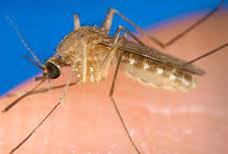A
abujagirl
Guest
The Federal Government on Monday said that vaccine and treatment for most vector diseases were yet to be found.
The Minister of Health, Prof. Onyebuchi Chukwu, said this in Abuja while briefing newsmen as part of actvities commemorating this year’s World Health Day.The theme of the 2014 event was,"Vector-borne diseases, with the slogan "Small bites, big threats".
Chukwu, therefore, advised Nigerians to take precaution to prevent occurrence of vector borne diseases.
He explained that vector-borne diseases were infectious agents, such as viruses, bacteria and parasites that living creatures carry and passed on to other living creatures.
The minister said the disease carriers called vectors include mosquitoes, ticks and mammals.
He listed examples of vector-borne diseases to include, dengue fever, malaria, yellow fever, Lassa fever and ebola.
"The individual and the community have a vital role to play, we must abandon some traditional practices that promote the spread of these vector-borne diseases and assume responsibility for personal hygiene. Such traditional practices include staying late in the open or sleeping outside without clothes, poor handling of dogs, consumption of unwholesome food and water.
"The bad news is that, currently, there are no effective vaccines against most of these disease. The good news is that we can protect ourselves by taking simple measures,’’ Chukwu said.
He said the prevalence of some of the diseases increased as a result of population, climate change and human activities which have negative health impact.
Chukwu noted that vector-borne diseases were preventable, yet they exert the biggest impact on the population.
The minister urged the public to help government track down any suspected case of ebola disease, advising that people should go for proper diagnosis of malaria and avoid self medication.
On his part, the World Health Organisation representative in Nigeria, Dr Rui Vaz, said in the African Region the social and economic impact of vector-borne disease was very high and the poorest were the most affected.
He added that in 2012 there were an estimated 564,000 deaths caused by malaria and 36,500 associated with sleeping sickness, saying more than 45 million people are at risk of elephantiasis.
"Factors that contribute to the burden of vector-borne diseases include poor environmental sanitation, poor living condition and climate changes that are conducive to the breeding of the vectors. Furthermore, vector resistance to insecticides constitutes a serious threat to vector control.
"The general public need to know that we can protect ourselves and our families by taking simple preventive measures such as keeping our environment clean and less conducive to vector breeding and survival,’’ he said.
Vaz called on other sectors, such as environment, agriculture and local government councils, to complement the fight against the diseases.

The Minister of Health, Prof. Onyebuchi Chukwu, said this in Abuja while briefing newsmen as part of actvities commemorating this year’s World Health Day.The theme of the 2014 event was,"Vector-borne diseases, with the slogan "Small bites, big threats".
Chukwu, therefore, advised Nigerians to take precaution to prevent occurrence of vector borne diseases.
He explained that vector-borne diseases were infectious agents, such as viruses, bacteria and parasites that living creatures carry and passed on to other living creatures.
The minister said the disease carriers called vectors include mosquitoes, ticks and mammals.
He listed examples of vector-borne diseases to include, dengue fever, malaria, yellow fever, Lassa fever and ebola.
"The individual and the community have a vital role to play, we must abandon some traditional practices that promote the spread of these vector-borne diseases and assume responsibility for personal hygiene. Such traditional practices include staying late in the open or sleeping outside without clothes, poor handling of dogs, consumption of unwholesome food and water.
"The bad news is that, currently, there are no effective vaccines against most of these disease. The good news is that we can protect ourselves by taking simple measures,’’ Chukwu said.
He said the prevalence of some of the diseases increased as a result of population, climate change and human activities which have negative health impact.
Chukwu noted that vector-borne diseases were preventable, yet they exert the biggest impact on the population.
The minister urged the public to help government track down any suspected case of ebola disease, advising that people should go for proper diagnosis of malaria and avoid self medication.
On his part, the World Health Organisation representative in Nigeria, Dr Rui Vaz, said in the African Region the social and economic impact of vector-borne disease was very high and the poorest were the most affected.
He added that in 2012 there were an estimated 564,000 deaths caused by malaria and 36,500 associated with sleeping sickness, saying more than 45 million people are at risk of elephantiasis.
"Factors that contribute to the burden of vector-borne diseases include poor environmental sanitation, poor living condition and climate changes that are conducive to the breeding of the vectors. Furthermore, vector resistance to insecticides constitutes a serious threat to vector control.
"The general public need to know that we can protect ourselves and our families by taking simple preventive measures such as keeping our environment clean and less conducive to vector breeding and survival,’’ he said.
Vaz called on other sectors, such as environment, agriculture and local government councils, to complement the fight against the diseases.


